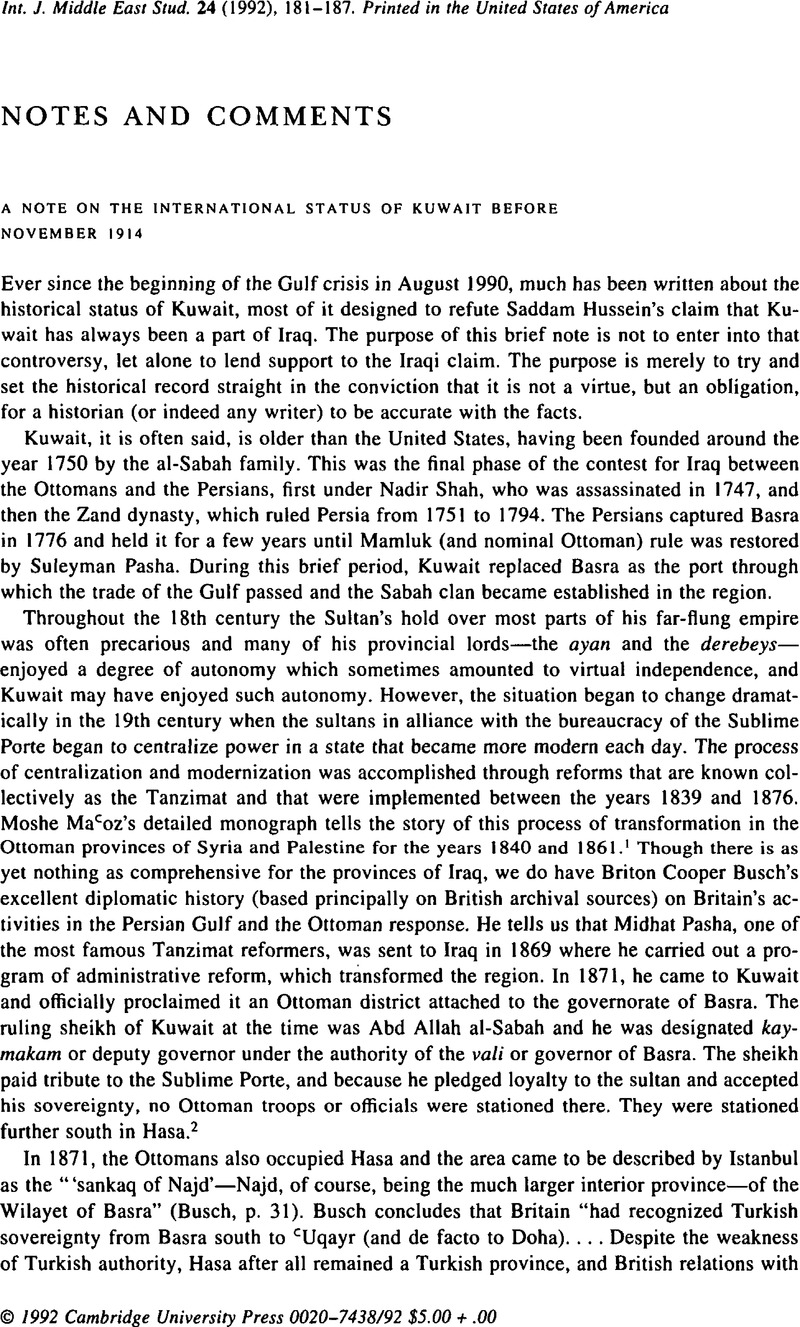Article contents
Notes and Comments
Published online by Cambridge University Press: 29 January 2009
Abstract

- Type
- Notes and Comments
- Information
- Copyright
- Copyright © Cambridge University Press 1992
References
2 Briton Cooper Busch, Britain and the Persian Gulf 1891–1914 (Berkeley, Calif., 1967), p. 32. Readers will be surprised to learn that Busch's monograph, the most comprehensive study of the subject, is not mentioned in most works on lraq and the Gulf. Nor did Professor Busch, who is Kenan Professor of History at Colgate University, appear in the media as an expert on the region during the Gulf crisis.Google Scholar
3 See, for example, Hassan, A. Ebraheem, Kuwait, Political Study (Kuwait City, 1975), p. 101. wrote: “This agreement… gave kuwait full control of Kuwait's external affairs and obliged it [Britain] to defend kuwait from any external aggression. The agreement was terminated in 1961, thus paving the way for kuwaiti independence”Google Scholar (quoted in Kemal, Osman Salih, “Kuwait: Political Consequences of Modernization, 1750–1986,” in Middle Easter Studies, 27, 1 [01, 1991], 62, n. 2).Google Scholar
4 Mahmut, Sevket Pasa, Mahmut Sevker Pasa'nin Gunlugu (Mahmud Shevket Pasha's Diary) (Istanbul, 1988), pp. 45, 152. and 176–77.Google Scholar
- 2
- Cited by


